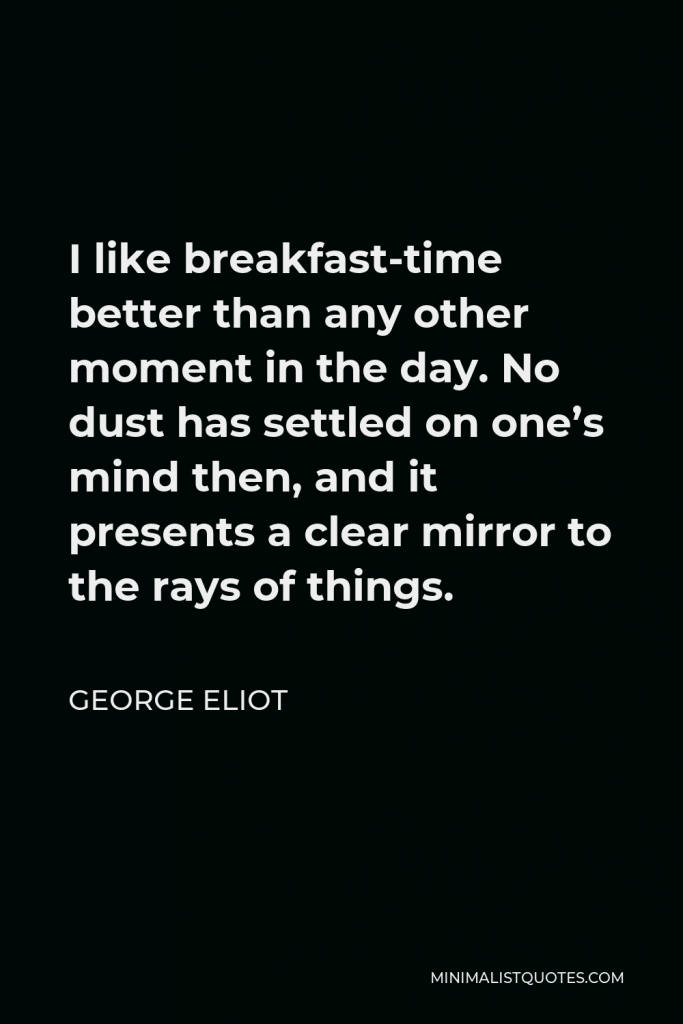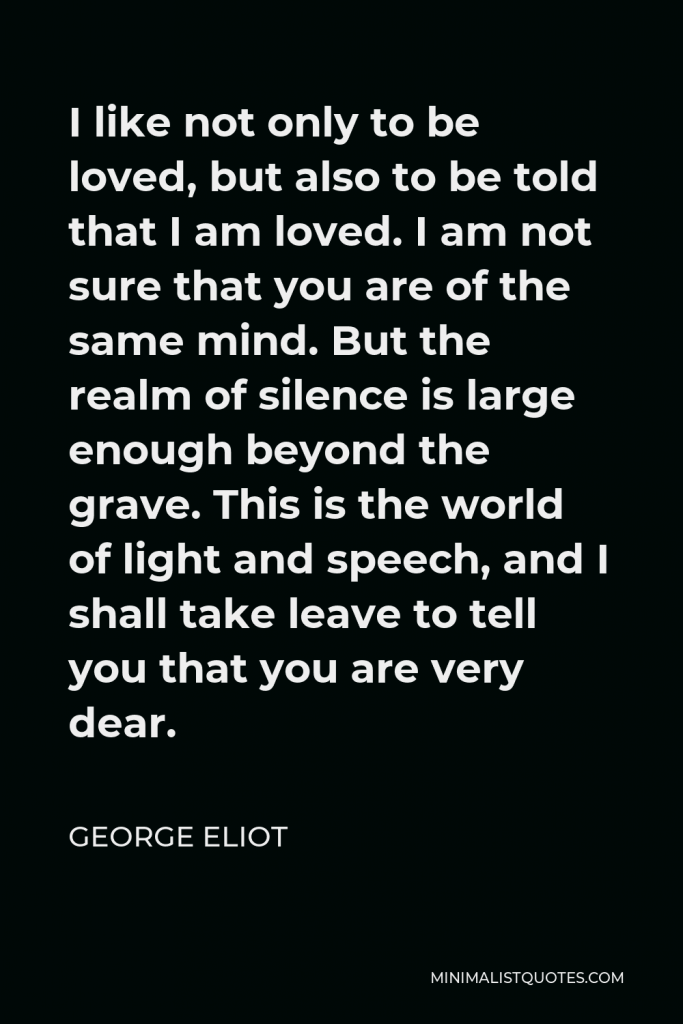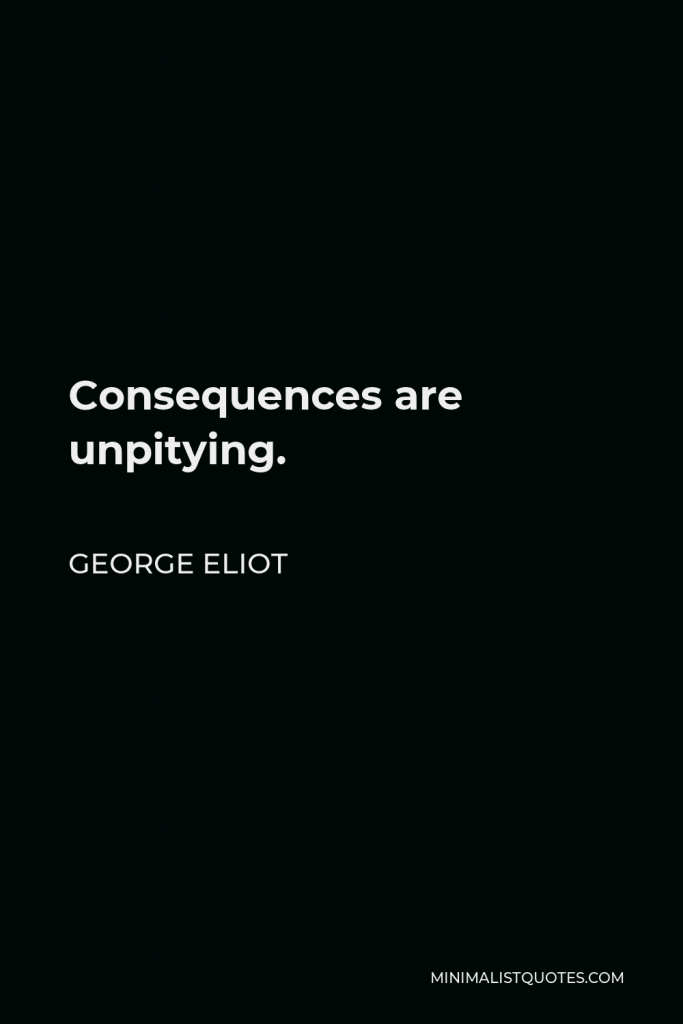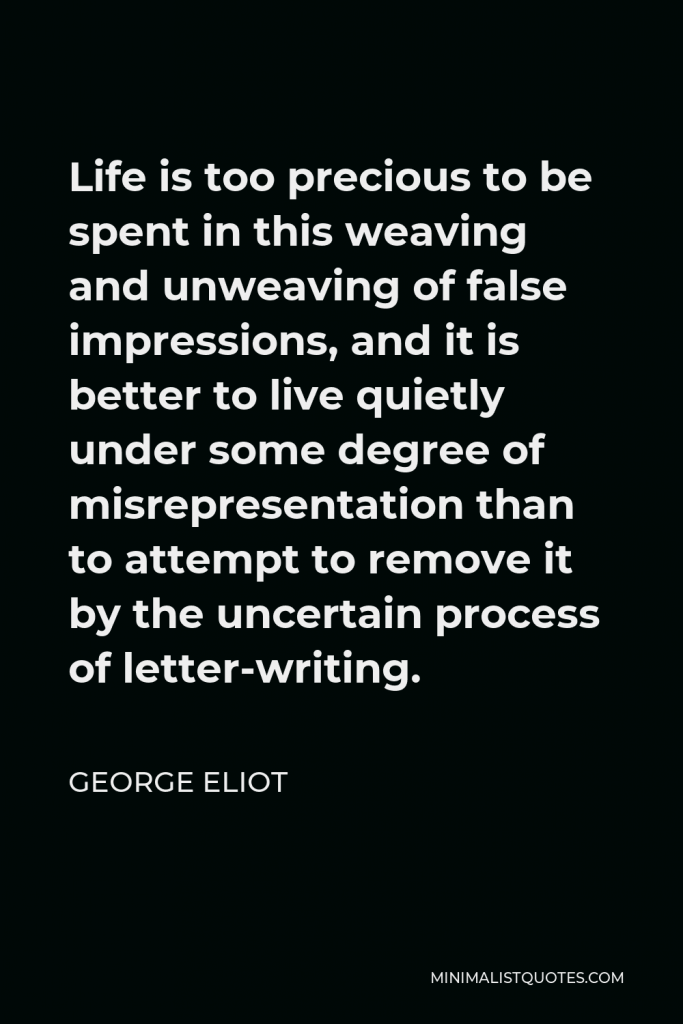It will never rain roses: when we want to have more roses we must plant more trees.
GEORGE ELIOTAny coward can fight a battle when he’s sure of winning; but give me the man who has the pluck to fight when he’s sure of losing.
More George Eliot Quotes
-






-







Animals are such agreeable friends – they ask no questions; they pass no criticisms.
GEORGE ELIOT -







What sunshine is to flowers, smiles are to humanity.
GEORGE ELIOT -







Of new acquaintances one can never be sure because one likes them one day that it will be so the next. Of old friends one is sure that it will be the same yesterday, today, and forever.
GEORGE ELIOT -







Those who trust us educate us.
GEORGE ELIOT -







In travelling I shape myself betimes to idleness And take fools’ pleasure
GEORGE ELIOT -







Conscientious people are apt to see their duty in that which is the most painful course.
GEORGE ELIOT -







I like breakfast-time better than any other moment in the day. No dust has settled on one’s mind then, and it presents a clear mirror to the rays of things.
GEORGE ELIOT -







I like not only to be loved, but also to be told that I am loved. I am not sure that you are of the same mind. But the realm of silence is large enough beyond the grave. This is the world of light and speech, and I shall take leave to tell you that you are very dear.
GEORGE ELIOT -







I flutter all ways, and fly in none.
GEORGE ELIOT -







Death is the king of this world: ‘Tis his park where he breeds life to feed him. Cries of pain are music for his banquet.
GEORGE ELIOT -







Consequences are unpitying.
GEORGE ELIOT -







It is as useless to fight against the interpretations of ignorance as to whip the fog.
GEORGE ELIOT -







“Heaven help us,” said the old religion; the new one, from its very lack of that faith, will teach us all the more to help one another.
GEORGE ELIOT -







Life is too precious to be spent in this weaving and unweaving of false impressions, and it is better to live quietly under some degree of misrepresentation than to attempt to remove it by the uncertain process of letter-writing.
GEORGE ELIOT -






All meanings, we know, depend on the key of interpretation.
GEORGE ELIOT







